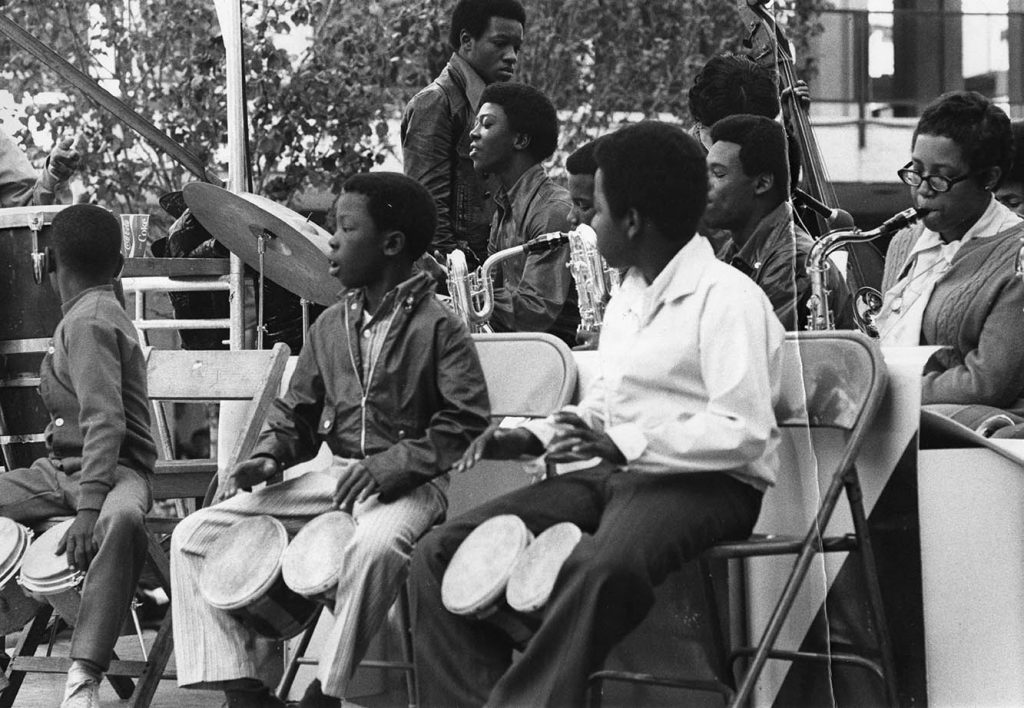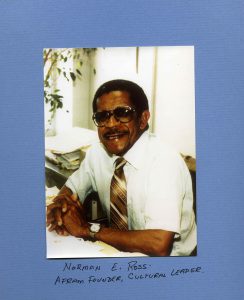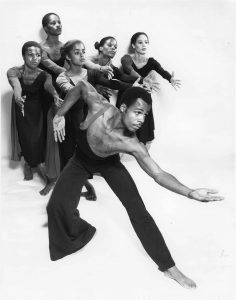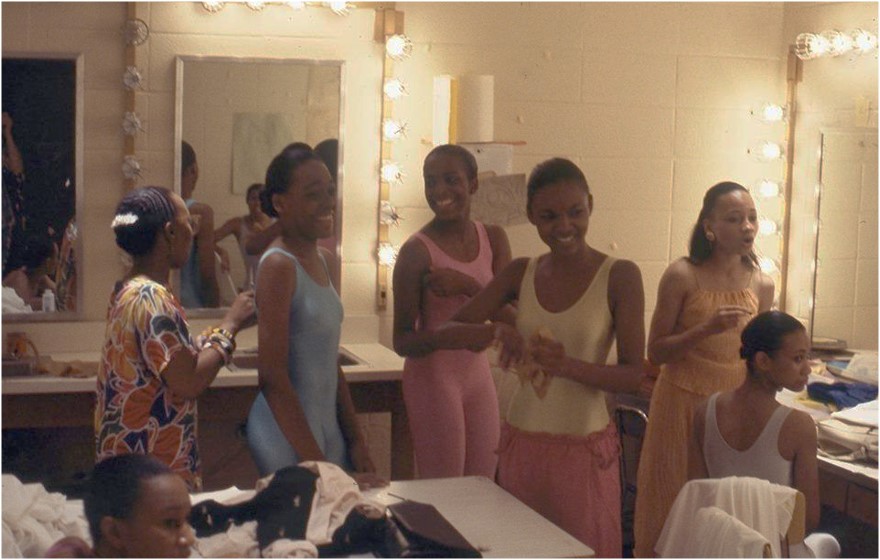Though the COVID-19 pandemic continues to limit many of our activities like in-person archives research, in-person instruction, community events, and other gatherings, we can celebrate and explore Baltimore history through digital exhibits from UB Special Collections & Archives.
February is Black History Month, but with Exhibits from the Archives you can learn about Baltimore’s Black History all year long.
One of our digital exhibits now available online is The Cultural Arts Program. Originally curated by Angela Koukoui in 2016 as a physical exhibit displaying a timeline showing the life of the Cultural Arts Program between 1964 and 1993, the exhibit was reimagined by Koukoui as a digital version in January of 2021. While the physical exhibit was only available to in-person visitors in 2016, the online version makes the history of the Cultural Arts Program accessible to all of us. The exhibit highlights photographs from a number of collections from the UB Special Collections & Archives including the Robert Breck Chapman Photographs, the Model Urban Neighborhood Demonstration Records, and Citizens Planning and Housing Association Records.

The Baltimore Cultural Arts Project was created by the Model Cities Program in the late 1960s in order to provide creative programs, events, and instruction in theatre, dance, music, art, and more. Born out of President Lyndon B. Johnson’s War on Poverty and the Model Cities legislation that was passed by the U.S. Congress in 1966, the Model Cities Program in Baltimore (and throughout cities in the U.S.) provided federal funds as an anti-poverty program in Johnson’s Great Society Campaign.
Later in 1974, the Urban Services Agency of Baltimore City ran the Cultural Arts Project in addition to education, employment, housing, and other programs and services for low-income families until 1993.

Dance education and performance in Baltimore are some of the longest standing legacies of the Cultural Arts Project. Norman E. Ross, one of the architects of the Cultural Arts Project, AFRAM, and other programs, endeavored to expand dance education to children and adults in Baltimore. In addition, he assisted with the founding of the Baltimore Dance Theatre with Orville Johnson in the 1970s. Later, under the leadership of Eva Anderson, the Baltimore Dance Theatre became the longest running professional dance company in Baltimore.
Learn more about Norman E. Ross with Norman E. Ross: Breathing Life into the Baltimore Arts Community, a 2015 digital exhibit from UB Special Collections & Archives.
Check out selected photographs and documents from the history of the Baltimore Dance Theatre with forEva: A Tribute to the Baltimore Dance Theatre a 2018 digital exhibit from the archives.

The Cultural Arts Program eventually closed its doors in 1993 after a devastating fire. But, its impact lives on. For exhibit curator and UB Special Collections Outreach Coordinator Angela Koukoui, the Cultural Arts Program, the impact of Norman Ross’ work, and the legacy of Eva Anderson’s Baltimore Dance Theater are all historically and personally significant. As a native Baltimorean growing up in the 1980s, Angela learned to dance through the programs provided by the Cultural Arts Project. She has shared her love of dance, teaching, and community history throughout her work and it shows in this wonderful exhibit. Her digital exhibit is a testament to the wonderful arts programming and learning opportunities provided by the Cultural Arts Project.

We hope you enjoy exploring the Cultural Arts Program, 1964-1993 digital exhibit and join UB Special Collections & Archives as we celebrate Baltimore arts history and Black history all year long.